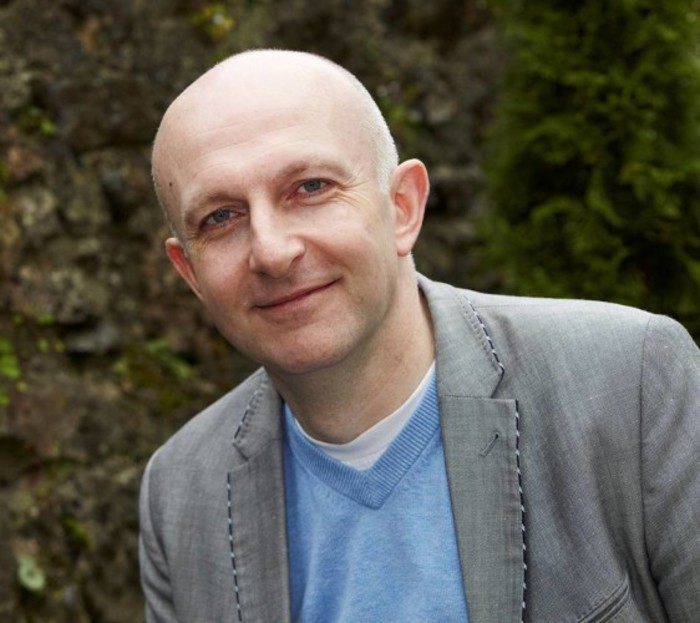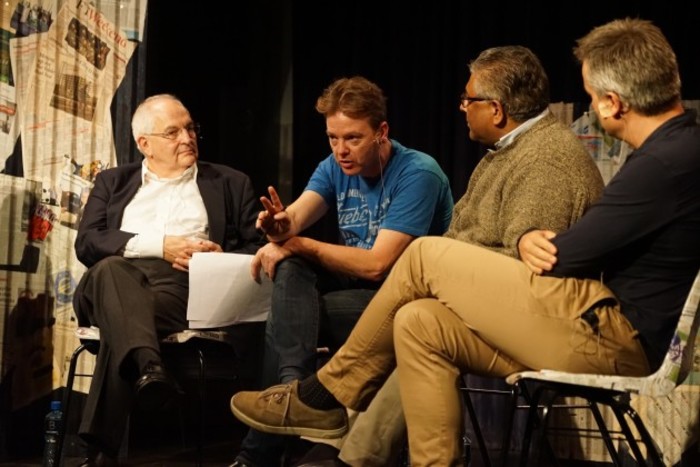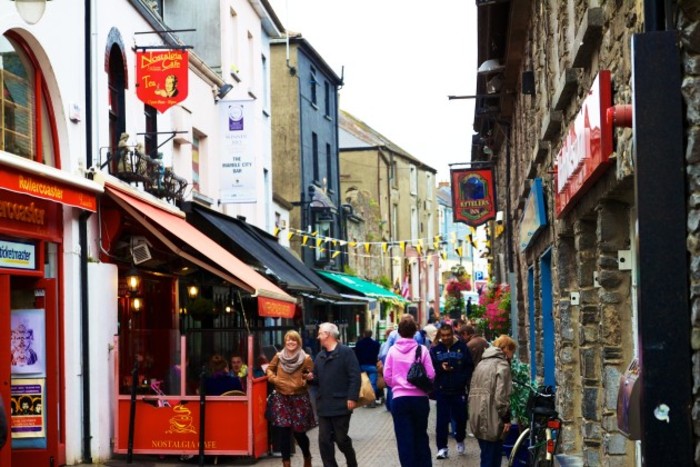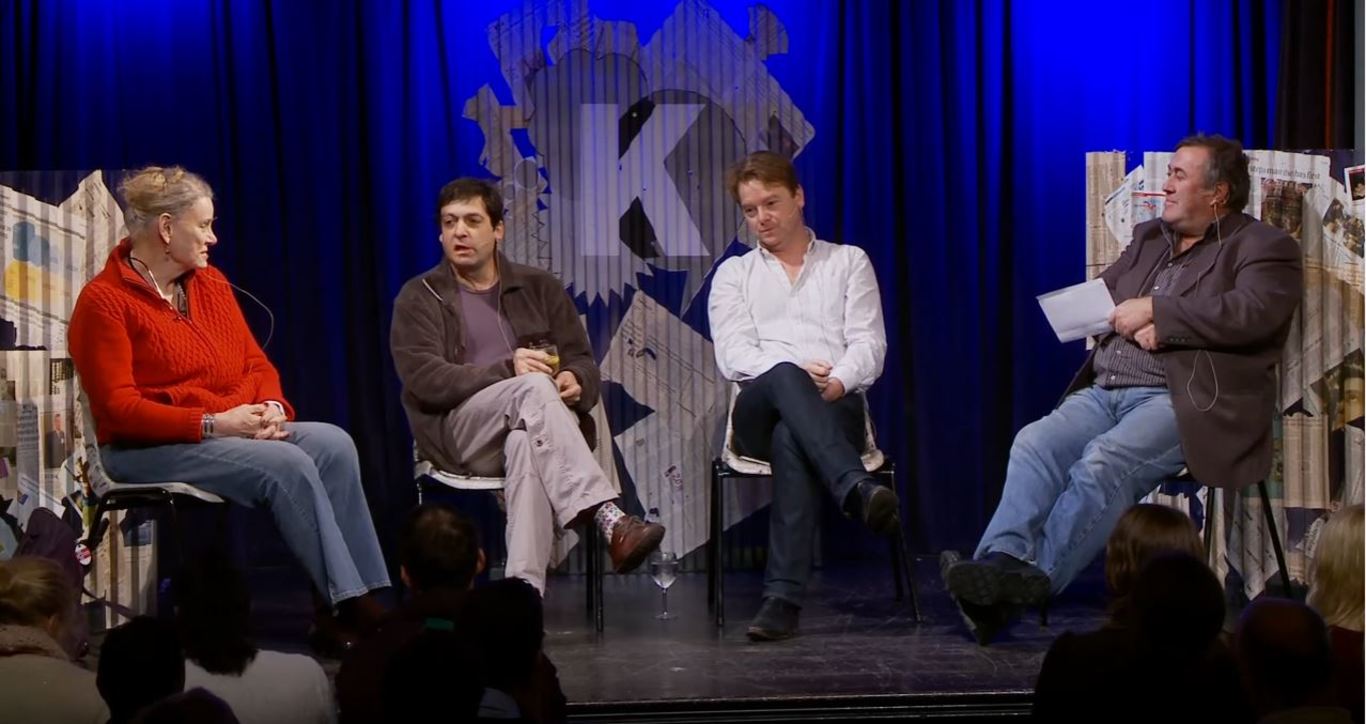'We don't allow any politicians at Kilkenomics - that's a principle I drew up on day one'
Co-founder Richard Cook reveals his secrets to running a successful festival.
“WHEN YOU PUT on big events in small places, the impact is much greater.”
Festival producer Richard Cook knows a thing or two about bringing high-profile names to intimate venues.
He is the co-founder of three major events in Kilkenny city: the Subtitle European Film Festival, Cat Laughs comedy showcase and Kilkenomics, a four-day festival where comedians and economists try to make sense of what’s happening in the world.
The latter takes place next week and will see the likes of Tim Harford, the ‘undercover economist’ at the Financial Times, on the same bill as Dara Ó Briain and Des Bishop.
“So many events have so many different aspects to them now that I just look at the programme and go ‘where would I begin?’,” Cook says.
“I like to be able to go to a festival with the feeling that I can understand what it’s about and I can get to see quite a lot of it.”
Cook attributes the success of Kilkenomics, now in its seventh year, to its simple format: “We get the comedians to dress formally and the economists to dress informally.”
 Richard Cook
Richard Cook
The role of the comedian at each show is not so much to get the laughs – although “when there’s gags there, they come out” – instead, they serve as the “audience’s representative” on stage to make sure the economists talk plain English.
The ultimate aim, however, is to get contributors to speak their mind. It’s one of the reasons why there is a strict no-TDs policy: “We don’t allow any politicians at Kilkenomics. That’s a principle I drew up on day one and I wouldn’t change it.
“The whole point about setting up Kilkenomics wasn’t exactly a public service,” Cook adds, “but definitely we were looking to explore and examine the ideas of what is the function of economics: it’s about the business of ordinary people’s lives.”
Word of mouth
Around 9,000 people are expected to attend this year’s event with ticket sales up almost 20% on last year’s figure.
Similar to the hugely popular Cat Laughs festival, which has been on the go for 22 years, Cook reckons the boost has come from old-fashioned word of mouth.
“There is so much hype around so many different festivals,” he says. “I think organic growth has definitely been my friend as a producer and it’s something I completely believe in.”
The festival is carefully curated and doesn’t receive government funding, which Cook says ensures “that the festivals I’m involved in actually connect with an audience”.
“I have a feeling that there is so much noise out there in terms of festivals that the content, what you actually put on, has never been as important as it is now.”
Despite making a profit of over €28,000 last year, Kilkenomics is not a “money spinner” for Cook or his founding partner, the acclaimed economist David McWilliams, who owns a 50% stake in the business.
 David McWilliams (second from left)
David McWilliams (second from left)
Neither take a salary from the company and make their money elsewhere: McWilliams as a columnist, advisor and public speaker, Cook as a theatrical agent at the Lisa Richards Agency, which represents a host of famous names including Pierce Brosnan.
Beautiful city
Despite receiving numerous invitations, Cook and McWilliams have no intentions of moving Kilkenomics anywhere else.
“You wouldn’t want to underestimate the role that Kilkenny plays in all this,” Cook says. ”It’s a very small but beautiful medieval city that people fall in love with. The contributors really like it.
“If we were holding this festival in an anonymous city anywhere in Europe, it would have a different feel to it. It would feel like a franchise.
“We’ve never sat down and tried to promote it through a one-hour special on TV. People really have to be there to appreciate it and I think that’s really helped it as a live event.”
He says the city is “a very important actor in Kilkenomics” – hence the name, which was created by Cook’s wife, Pauline McLynn, star of Father Ted and Shameless.
 Kilkenny city
Kilkenny city
In terms of future plans for the event, Cook is looking at introducing a pitch battle where some of the economic ideas that come out of the festival could be put into practice at a local level in Kilkenny.
“I don’t want to do it like Dragons’ Den,” he says, “just something a little substantial with people trying to get some indigenous projects off the ground with small amounts of money.”
He is also planning a documentary that traces Ireland’s recent economic history through the eyes of a young child.
After seven years of Kilkenomics, Cook says he still finds a lot of economics “incredibly difficult to understand”.
“But I can really nose out now when people are really bullshitting – my bullshit detector has improved.”
Kilkenomics takes place 10 to 13 November.






